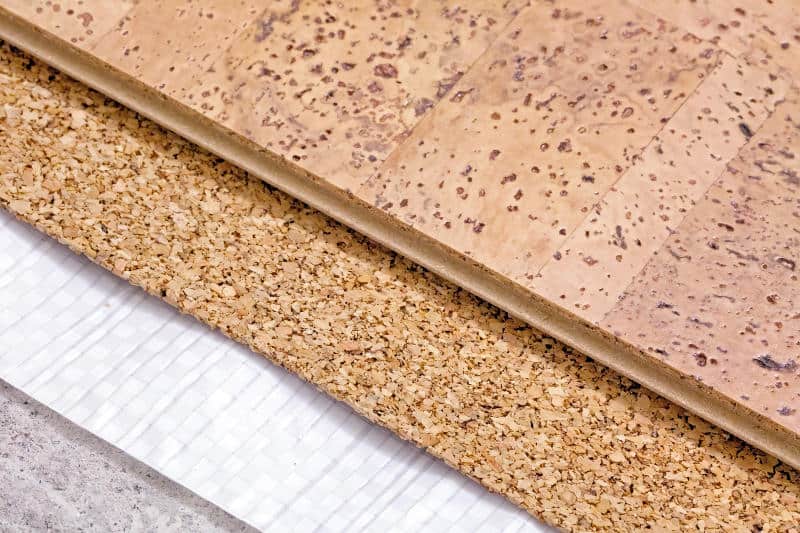Soundproofing Tires: How to Reduce Noise for a Better Driving Experience
Do you know the feeling of driving your car, only to have it interrupted by an annoying sound coming from one or two of your tires? It is a fact that tires can be a noisy component of your car, but that doesn’t mean you need to put up with it.

There can be different reasons why your tires make noise. It can depend on the type of tires or how old they are. Nowadays, almost all car manufacturers are looking for the best ways to make their tires quiet but it can take a lot of time to make this. But, there are some ways to make them quieter.
One of the many ways people reduce noise from tires is through soundproofing them. Soundproofing tires provide an immediate and noticeable difference in how loud they are when rolling down the street and how much noise enters the interior cabin space of your vehicle. To learn more about soundproofing tires, we’ve created this handy guide!
Types of Tire Noise
There are two major types of tire noise. First, there is road noise or the sound created when your car’s tires hit the pavement and stones on the street. Secondly, you will notice a different type of sound when accelerating, braking, turning sharply, or driving in high winds.
Road Noise
Road noise is actually normal! Even though it does not give us that comfortable feeling inside our cars; this kind has to do with aerodynamics. It happens because air travels over the surface area of your vehicle. This creates pressure waves which make sounds like hissing, booms, etc… Depending on how fast you drive also makes an impact here as well since more wind means higher volume levels outside.
Acceleration/Braking Noise
It happens when one wheel locks up due to braking or acceleration forces are applied on it too quickly without allowing enough time for tire rotation. The friction between the road surface and tire causes this type of noise which means that something is wrong with either the brake pads, rotors, calipers, or drums if they’re not working properly.
How to Reduce Noise From Tires
Noise from tires is inevitable, but there are ways to reduce noise and make your car a better place for you and your passengers.
Soundproof the Floor
If you cannot afford to soundproof the whole car, you can start with your floor. This is a cheap and quick way of reducing the noise coming from four tires since it covers almost all the space available in your vehicle’s interior cabin.

You will need:
- Carpet underlayment (the shaggy kind) or felt paper/materials that are not too thick but enough to absorb vibrations and dampen sounds also known as padding or insulation used on top of carpeting. You can achieve noise-reducing up to 40%. You may also use standard batt insulation material found at hardware stores instead.
- Scissors or utility knife to cut the material to fit your floor’s space properly
Main steps:
- Measure and mark where you will be placing these materials on top of your car’s carpeting (floor). Use a marker so that you can easily see it then, start cutting along these marks until everything is fitted into place perfectly. Do this for all four tires’ insides as well as the trunk area if possible.
- Put back your factory carpets/carpeting now by sliding them under the matting carefully using minimal effort necessary because overstretching may cause damage to certain areas like creases or bends here and there which results in again bad contact with your car’s floor.
Add Mass Around Wheel Wells
This method of noise reduction is best done before you cover the floor. What this does is add weight around your wheel wells which changes how much resonance occurs inside them when driving down the road. It also helps to reduce rattling if these items are already installed or present in your car’s trunk area or cargo space. You can use any mass material (25lbs should be enough) such as carpeting, felt paper/materials that are not too thick but enough to absorb vibrations and dampen sounds.
Replace Door Seals
This step is for semi-professional soundproofing. Door seals are the rubber/plastic materials that seal off your car doors from dust, debris, and other particles that can cause corrosion if not removed or filtered properly. Replacing these with heavy-duty weatherstripping will reduce noise by up to 25% depending on which you use and how much space there is still left along the door cavity area where it was installed.
For best results:
- Measure one of your old door seals first so you know what size you need before purchasing new ones.
- Clean your door wells thoroughly first making sure that there is no dirt, grime, or even pebbles found inside using a vacuum.
- Install new weatherstripping material once all the cleaning above has been done properly. Make sure both sides are fitted into place tightly by using a rubber mallet then start hammering it at different points until everything fits seamlessly.
- Use your vacuum again to suck up any leftover residue left inside the door cavity area then wipe down this surface with a moist cloth or other cleaning material that can be used safely on car parts. Let it dry off completely before putting back door seals. At least 24 hours should do already so wait for its effects first before closing doors and driving away in your vehicle.
Fill Your Car Tires
The underinflated tires make more noise while riding as they have more contact with the road. Filling your tires completely will result in less tire cavity air space left over. It means there won’t be as much resonance inside this area anymore when driving at speeds of 60+ miles per hour. As the result, it will help to reduce noise.
You can also try to fill car tires with nitrogen instead of regular air. This method can reduce tire noise by up to 25% if done properly.
Get Your Tires Rotated & Balanced
This is another way to reduce tire noise by up to 22%. It also improves your car’s fuel economy and overall driving performance at the same time. Tires that are unbalanced or out of alignment can cause vibrations throughout your vehicle, creating more noise over time as well as causing excessive wear on suspension systems. You need to get the tires rotated and balanced regularly according to manufacture specifications if you care about keeping your vehicle in tip-top shape long term so and if you want to reduce road noise.
Once you have your car’s tires rotated and balanced, less weight will be placed on each tire which is helpful in reducing vibrations inside the cabin area of your vehicle while driving at high speeds. This can result in reduced noise levels over time if done regularly every 5000-7500 miles.
Drive at Slower Speeds
Driving at slower speeds also creates less noise inside the cabin area of your vehicle. It’s best to stick with driving between 45-55 mph as it reduces tire and wind resistance, making for a smoother ride overall. The reduced engine RPMs will help reduce rattling if this issue is due to loose parts inside the engine compartment or even in other areas such as undercarriage components that rattle against each other when moving down the road.
Also, If you drive in the city and in heavy traffic, avoid accelerating quickly or braking abruptly. The faster you accelerate from a stoplight for example or slow down while going uphill to descend faster can make your tires work harder which creates more noise inside the vehicle. It’s best to plan ahead if possible before entering busy roads so you know exactly how much throttle/brake application is needed during certain driving situations that arise when on the road with other motorists around.
Replace Your Tires With Quieter Ones.
One of the easiest and most effective ways to reduce tire noise is by simply replacing them with new ones. Pirelli, for example, manufactures tires that are known to be some of the quietest on the market when used as original equipment in cars such as Mercedes Benz and Audi just to name a few brands/models known for being exceptionally quiet inside their cabins. It’s important to keep your vehicle in top shape moving forward for many years if you want an extremely smooth ride overall while operating at higher speeds too without excessive cabin noise over time increasing dramatically due to worn out or damaged parts which can’t be replaced by the owner.
If you are planning on buying new tires for your car, make sure to check out tire noise ratings when comparing different brands/models of all-season types or winter/summer performance models with low road noise. If this is a concern that can be measured in decibels (dB) to help decide what’s best for your own personal driving needs based on budget and how much money you’re willing to spend per tire.
If you want to have a comfortable drive without annoying noise and other problems you must keep your car in top shape. Especially, you must keep a keen eye on your wheels and tires if you do not want to hear the noise.



